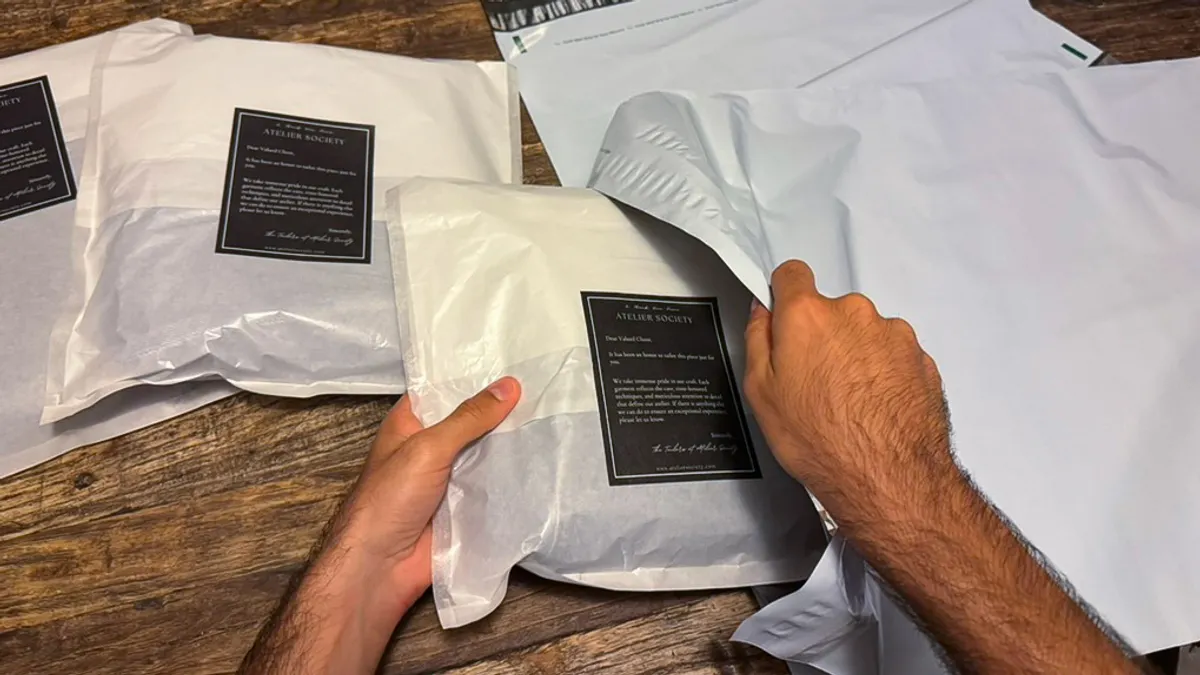Atelier Society wants to modernize the world of garment fitting, but it’s not exactly a tailoring company.
The early stage startup is positioning itself as a logistics company, said founder and CEO Sophie Friedfeld-Gebaide. Atelier Society manages tailoring services for brands and retailers by shipping items in need of alterations to partner factories and then delivering fitted garments directly to the customer.
“There’s such a need we’ve found for tailoring, because stores have not been able to offer this to their consumers, just because it’s a logistics hurdle,” Friedfeld-Gebaide said.
Ultimately Atelier Society is looking to address what Friedfeld-Gebaide called an excessive amount of returns that lead to waste in the fashion industry. She added that the bulk of returns are made because of fit issues.
“We don’t want tailoring to be in the dusty back room in the retail shop that’s not well managed,” Friedfeld-Gebaide said.

The startup spun out of Yale University and is partially funded by grants through the university, in addition to private and venture capital funding. Atelier Society began offering its services in December 2024, and once the company builds out its client load, Friedfeld-Gebaide said she hopes to raise another funding round, possibly as early as this fall.
Atelier Society recently launched a partnership with indie apparel label Lisa Says Gah. It also has partnerships with denim company Still Here and two clothing boutiques Allegra Vintij and Galvanic. While these are smaller businesses, Friedfeld-Gebaide said Atelier Society is able to expand quickly to any number of stores because its software can integrate within a company’s operations.
As a logistics provider, Atelier Society doesn’t hire in-house tailors but instead trains retail staff on how to fit for alterations. The garment is then labeled with Atelier Society’s tracking tags and shipped to a partner factory. Finally, the startup ships the finished garment directly to the customer.
Atelier Society looks to differentiate itself from competitors by not having in-house tailors or operating a tailoring factory, Friedfeld-Gebaide said.
The company is in the beta testing phase of adapting its service to e-commerce. That could eventually appear as an integrated widget on brands’ websites that allows customers to take a 3D scan of themselves and decide whether their item needs tailoring.
Within the next two years, the startup is looking to add repair services by focusing on items that arrive from a factory with issues, such as missing buttons or tears, which could help retailers avoid throwing away damaged garments.
Looking ahead, Friedfeld-Gabaide said Atelier Society will work on scaling consumer repairs. The offering could help brands, since some U.S. states and certain countries mandate that brands become responsible for the repair and recycling of their products. However, she said this is a more difficult market.











